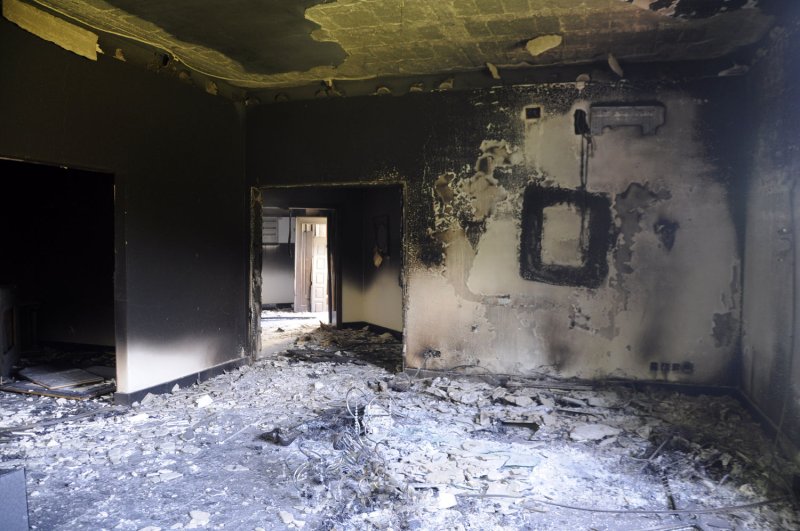BENGHAZI, Libya, Dec. 27 (UPI) -- Libyan officials, stung by criticism over their response to the attack on the U.S. Consulate in Benghazi, said they will create a diplomatic security unit.
Part of a major overhaul of its security program, the decision to retool security for diplomats comes, in part, to help stem the international criticism of Libya's response to the anti-American attacks in Benghazi, where the U.S. Consulate was attacked and Ambassador Christopher Stevens and three others were killed, The Wall Street Journal reported Wednesday.















